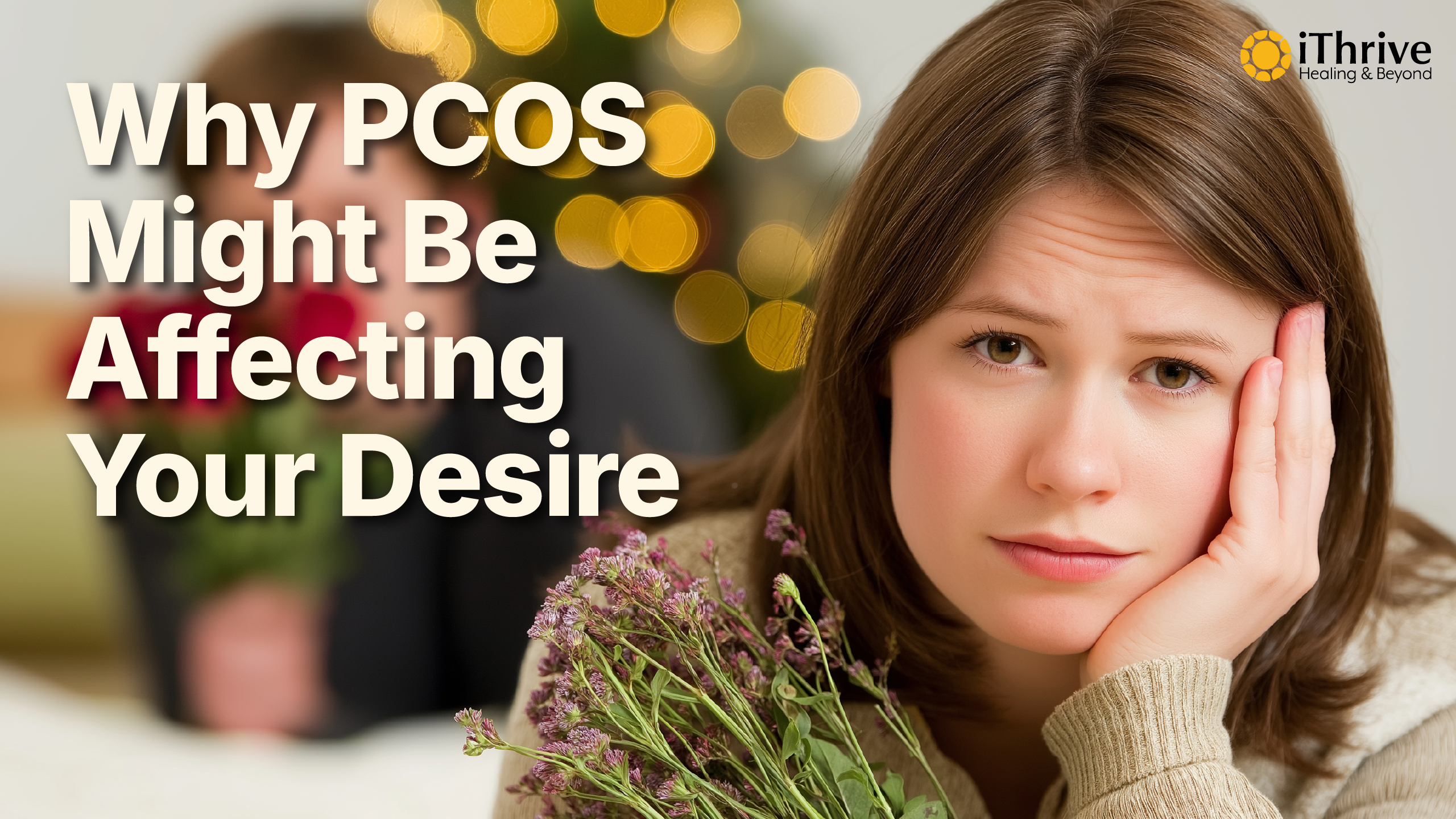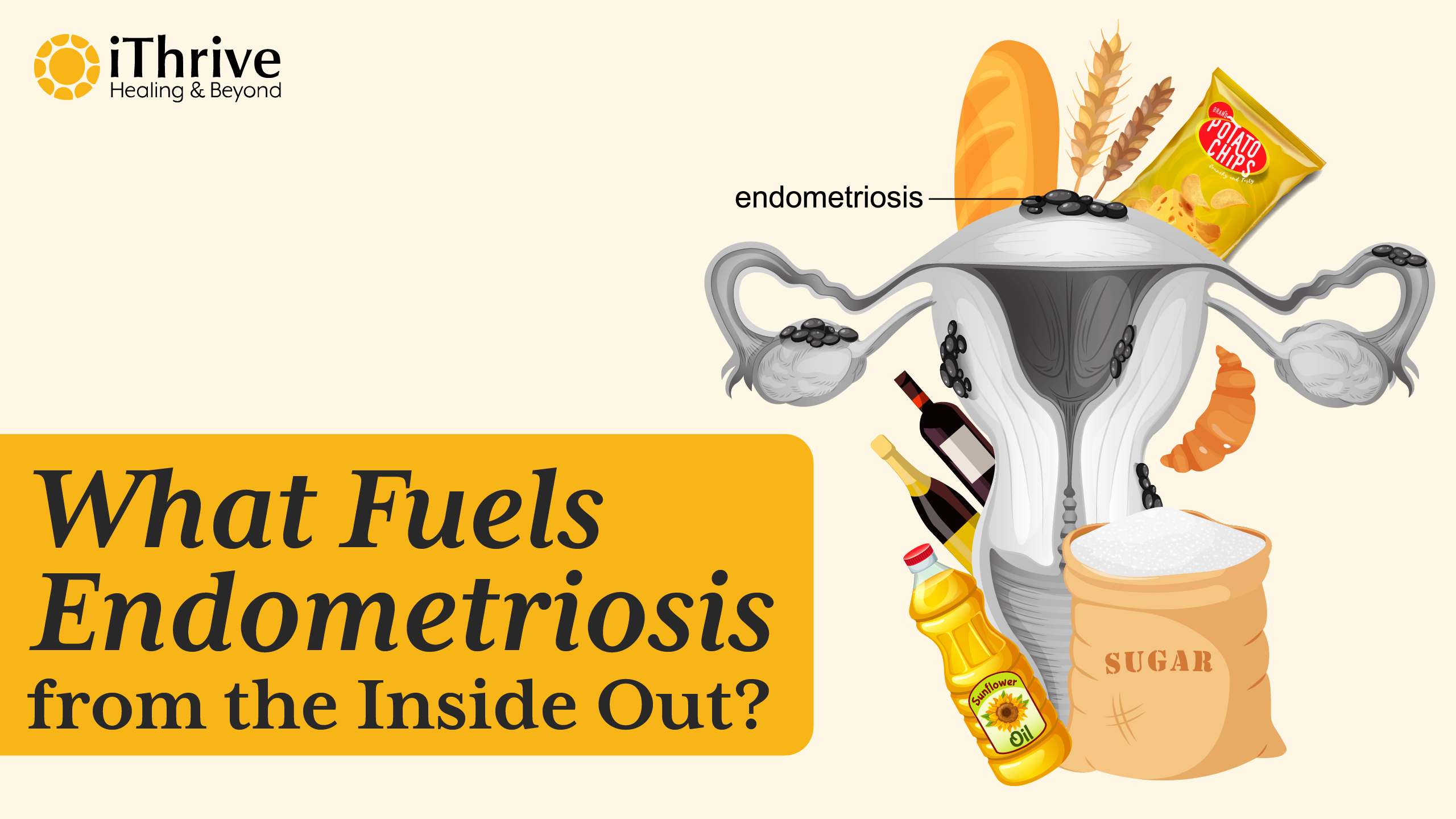PCOS (Polycystic ovarian syndrome) or PCOD (Polycystic ovarian disease) is a medical condition that affects a woman's ovaries, the reproductive organ that is responsible for the production of hormones that regulate the menstrual cycle. In comparison, women with PCOS produce an extraordinary amount of the male hormone testosterone. This imbalance leads to skipped periods and decreases the chances of pregnancy. PCOD leads to the production of immature or partially mature eggs in large numbers, leading to the formation of cysts in ovaries.
Signs And Symptoms Of PCOS and PCOD:

Signs and symptoms usually develop around puberty, although, in some females, the signs and symptoms do notdevelop till late adolescence or even in early adulthood.
Since the signs and symptoms may vary. A diagnosis is only to be made when you experience more than 2-3 of these signs-
1. Irregular menstruation - One of the main symptoms in females is inconsistent menstruation form, like irregular, extended, or missed periods. The disturbance in the regular menstrual cycle caused by hormonal imbalance makes it difficult for an individual to predict the ovulatory phase or the menstruation.
2. Acne and Hirsutism - PCOD often causes severe acne and hirsutism (abnormal hair growth) in certain areas like the face, chest, abdomen, and back due to increased androgen levels, making it difficult to manage through casual methods.
3. Obesity - Women with PCOS find it difficult to manage their weight due to abnormal hormonal balance and reduced body sensitivity to insulin. Increased insulin levels encourage increased production of the testosteronepromoting weight gain.
4. Polycystic ovaries - Women with PCOS have multiple cysts (Small fluid-filled sacs) in the ovaries.
Signs and Symptoms of PCOS and PCOD get worse if you're obese.
Types of PCOS and PCOD:

PCOS
1. Insulin-Resistance PCOS - This is the most common type, affecting around 70% of women with the condition. This happens when the body's cells do not respond to insulin, a hormone that regulates the blood sugar leveler glucose. It is Caused by many lifestyle-related factors such as smoking, excess sugar intake, lack of physical activity, consumption of processed foods.
2. Post pill PCOS -This is developed due to the consumption of birth control pills that suppress ovulation. Since the effects are temporary and resume the ovulation once the consequence of the pill ends. But for some women, the ovulation does not resume for months and years even after the effect of pills is over.
3. Inflammatory PCOS - In this, ovulations prevented due to hormonal imbalance and production of androgens. Inflammation is caused due to stress, toxins in the environment, and inflammatory dietary food like gluten.
4. Adrenal PCOS - This is the simplest type of PCOS, once the cause is determined it takes around 3-4 months to resolve the condition. The causes might be Thyroid disease, deficiency of iodine, zinc-deficient diet, and artificial sweeteners.
PCOD
1. Mild PCOD - It often leads to mild hormonal imbalances and cysts in the ovaries. This is determined by slight menstrual irregularities, minimal hirsutism (body hair), and mild acne.
2. Moderate to Severe PCOD - It leads to more distinct hormonal imbalances and multiple cysts. This is announced by significant menstrual irregularities, hirsutism, acne, weight gain, and fertility issues.
3. Metabolic PCOD - It is associated with metabolic syndrome, including insulin resistance and obesity. Often leads to complications like weight gain, difficulty losing weight, high cholesterol levels, and increased risk of type 2 diabetes.
Factors Triggering PCOS And PCOD:
PCOD/PCOS occurs due to a combination of components and way of life. To successfully treat this condition, To understand the causes.
1. High Androgen Level - Expanded androgen levels prevent ovaries from discharging eggs, resulting in irregular menstruation, hirsutism, and acne.
2. Overproduction Of Insulin - Insulins a hormone naturally produced that directs the body's metabolism and blood sugar level. Excess insulin can stimulate the generation of androgens (male hormones), repressing ovulation.
3. Low-Grade Inflammation - Ladies without tend to have chronic low-grade inflammation. By undergoing blood tests that measure levels of C-reactive protein (CRP), HS-CRP and white blood cells, show the level of inflammation in your body.
4. Genetics - Genes might be connected to PCOS/PCOD.
5. Caffeine Intake - Acids in coffee have been recognized to increment insulin levels and What is blood weight?
Role Of Diet In PCOS/PCOD:

Diet plays a vital part in overseeing the side effects of PCOS/PCOD. An adjusted diet can assist direct insulin levels, which is important since insulin resistance is common in PCOS. Nourishments with a low glycemic index, high fiber, lean proteins, and good fats are generally recommended. Keeping up a healthy weight through diet, working out, and an improved way of life can decrease indications and improve overall well-being.
Foods to be included in the diet-
● Foods with a low glycemic index diet - whole grains, beans, seeds, starchy vegetables.
● Anti-inflammatory diet - berries, Seasonal fruits.
● High-fiber foods.
● Spices like turmeric and cinnamon.
● Include high protein-rich foods
Foods to be avoided in the diet-
● Fried foods, such as fast foods
● Sugary beverages such as sodas and energy drinks
● Processed meats
● foods with high levels of added salt or sugar
● Include meethi seeds and bitter herbs
Expert Explanation -
Are you planning for a change? Connect now with Mugdha Pradhan.
From self-hatred to self-love, she changed her life from being obese, unhealthy, broke, and discouraged to becoming a successful solopreneur. For a long time, she battled with anxiety, depression, exhaustion, and financial instability due to Hashimoto's disease. Forced to be an extrovert, she found herself deteriorating further, feeling caught in a dull corporate life, and battling a food habit despite her master's in Nutrition. Various diets, pills, and workouts failed, and she turned to cannabis to numb her torment. A cold marriage and the weight of being a youthful mother declined her condition.
A wake-up call came when frequent energy crashes and accidents led her to quit all stimulants. Hitting rock-bottom, she looked for routine therapeutic help but found no relief until she discovered Functional Medicine. Through progressed blood information examination and profound diagnostics, she lost 37 kg, reversed her immune system condition, and progressed her mental health. Choosing to break free from societal standards, she ended her 14-year marriage, returned to India, and started her transformation. As her health and behavior improved, individuals looked for her to offer assistance, driving her to build up India's first Functional Nutrition Company, Thrive. Despite facing challenges and a lack of support, she persevered with the COO's help. Today, she helps individuals overcome physical well-being issues and supports mental, emotional, and spiritual well-being through her program, 'Embracing The Human Experience'.
Subscribe to our newsletter and receive a selection of cool articles every week




.png)


.webp)

.jpg)





